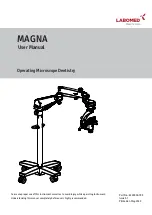
4 FEATURE SUMMARIES
17
4
4
.
.
3
3
T
T
w
w
o
o
-
-
L
L
e
e
v
v
e
e
l
l
L
L
i
i
m
m
i
i
t
t
S
S
e
e
t
t
t
t
i
i
n
n
g
g
a
a
n
n
d
d
N
N
o
o
i
i
s
s
e
e
R
R
e
e
d
d
u
u
c
c
t
t
i
i
o
o
n
n
(
(
N
N
R
R
)
)
M
M
o
o
d
d
e
e
a) Two-level limit setting
This leak tester permits setting a small leak limit (Hi-NG) and a large
leak large leak limit (HH-NG) in the DET stage. In the normal leak
test cycle, nonconforming parts can be screened out according to
the amount of leakage. Limit settings for the master are similar to
those on the tested part.
b) Noise reduction (NR)
If the NR feature is enabled, HH-NG is set as a noise reduction limit and the range between HH-NG and
Hi-NG is taken as an uncertain judgement area. If the leak rate detected in the DET stage falls in this
range, a longer stability time is allowed to cancel the noise interference before the leak rate is
redetected.
This feature is useful where there is a high percentage of noise presence caused by temperature or
volume changes. It helps set more critical specifications. A small leak (Lo-NG) and a large leak
(LL-NG), and the NR feature can be set as limit settings on the master as on the tested part. Master
Pre-set is not effective from the second test.
4
4
.
.
4
4
A
A
i
i
r
r
-
-
O
O
p
p
e
e
r
r
a
a
t
t
e
e
d
d
V
V
a
a
l
l
v
v
e
e
P
P
e
e
r
r
f
f
o
o
r
r
m
m
a
a
n
n
c
c
e
e
a
a
n
n
d
d
D
D
P
P
S
S
S
S
e
e
n
n
s
s
i
i
t
t
i
i
v
v
i
i
t
t
y
y
C
C
h
h
e
e
c
c
k
k
s
s
Air-operated valve malfunction or DPS sensitivity degradation can lead to serious measurement errors. In
order to prevent such failure the sensor and air-operated valve performance is automatically checked at the
end of the each test cycle to ensure reliability of leak testing.
a) Intelligent I Air Circuit (Function Type A)
Air is supplied and air is exhausted from the master and the tested part simultaneously during DL3
stage (Air blow). If the air-operated
valves are functioning normally, the
orifice difference between the exhaust
ports of the master and the tested part
introduces a pressure difference.
This pressure difference is used to
check the test and the pilot pressure
deterioration and DPS sensitivity
degradation as well as the air-operated
valve performance.
b) Other Circuits: H15
The high-pressure Intelligent
I
pneumatic
circuit, H15, detect the pilot pressures for the air-operated
valves with pressure switches to check their performance.
Large leaks are detected as failures in the BAL stage.
The stage number output allows for discrimination
among Hi-NG, HH-NG, and BAL-NG.
NOTE
High pressure model, H15, omits air blow and
self-check.
NOTE
Low pressure models require an optional orifice.
NOTE
















































